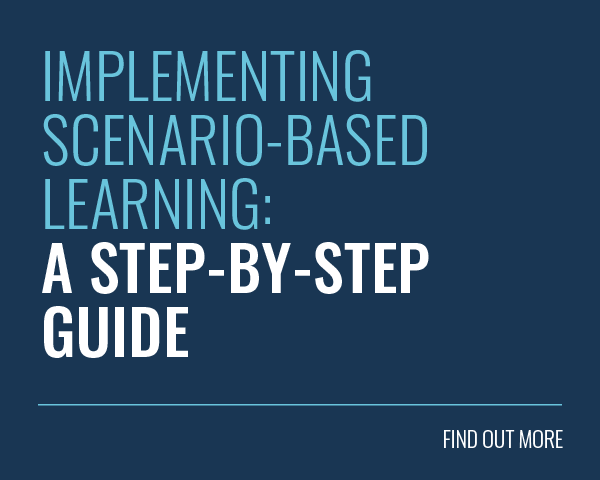 Last week I explored how to create a strong business mission statement. This week, I look at the benefits of communicating this important message throughout your organisation.
Last week I explored how to create a strong business mission statement. This week, I look at the benefits of communicating this important message throughout your organisation.
Your company may have a truly awesome business mission statement. You know the kind: A purpose so powerful it has to be encased in lead; Values so worthy they are blown-up across your office walls; And a message so inspiring it’s got its own TedTalk! Your mission statement tells the world how your company is making a positive difference.
Yet, this important message is wasted if your employees know nothing about it!
As business leaders, it’s easy to assume staff know and understand the company’s purpose but this isn’t always the case. Research shows only 4 in 10 people know what their company stands for and less than 50% feel connected to their organisation’s mission.
How can we change this? And why bother?
Below, I explore the reasons why it’s so important to communicate your business mission to employees and raise their awareness of the company’s purpose.
7 Benefits of Communicating Your Mission to Employees
1. Employee Engagement
Boost employee engagement by giving staff a clear mission to engage with! Research shows, 73% of employees who report working for a ‘purpose-driven’ company are engaged compared to just 23% at ‘non-purpose driven’ companies. This shows communicating your company’s purpose plays a pivotal role in determining employee engagement levels.
When people feel engaged at work they feel personally committed to the organisation’s purpose, values and goals.
Engaged employees care about the company’s mission and will go above and beyond to achieve it! This is why it’s so important to ensure staff understand the mission statement.
2. Improves Productivity and Customer Satisfaction

70% of business executives say embracing the company mission boosts employee productivity ‘to a great extent’. Research from Global Tolerance confirms this, revealing over a third of people work harder if they understand how their job benefits society.
What’s more, when employees support the company’s mission they are more likely to communicate it to customers and boost customer satisfaction!
Author and ‘unshakeable optimist’ Simon Sinek puts it perfectly, saying: “Customers will never love a company until the employees love it first.” I wholeheartedly agree. I believe happy, engaged employees create happy customers!
3. Employer Accountability Builds Trust
Research shows 1 in 3 employees don’t trust their employer. Making your company’s intentions, values and purpose clear can change this. A strong business mission statement is a brilliant opportunity to build trust between employers and employees. By pinning your colours (or values, principles and goals!) to the mast you create accountability, as a company and employer.
So ensure your mission statement speaks equally to external and internal stakeholders. When your employees see the message, it should communicate how the organisation will treat them, how it will benefit them and what to expect from working there. It means your employees can hold you to your word!
4. A Strong Employer Brand

Your mission statement also tells potential candidates what sort of employer you are. You can use it to create a strong employer brand that attracts top talent.
By encapsulating your values, culture and beliefs within the mission statement you will give prospective candidates a clear idea of who you are and what you expect from them. This encourages applications from people who share your values, vision and desire to share the world!
Let’s take Whole Foods as an example. The ethical food retailer uses a business motto to communicate their ethos to customers and employees alike: “Whole Foods, Whole People, Whole Planet.”
These simple words tell both internal and external stakeholders how the company makes a difference and cares about the whole person. Do you think this helps creates a strong employer brand?
5. Improves Learning and Development
Understanding the business mission statement helps give employee training purpose and Epic Meaning. Why? Because it helps each individual see how the course content benefits their personal career goals and the wider company mission.
Give your training extra meaning by clearly communicating how it is tied into the company’s bigger purpose. How will the skills gained enable employees to achieve the company mission? By making this clear, learning will no longer be a tickbox exercise but a meaningful development tool that people want to take part in!
6. Aids Business Decision-Making
People like to know what’s expected of them and with good reason! Anyone who’s ever been on a diet, got a tight deadline or is writing a book (I can’t be the only one right?!), knows the power of clear goals. Clearly defined objectives help us focus and achieve our target. The business mission is the mother of all goals! It gives your employees’ short-term goals context and helps everyone stay on track to success.
The mission statement also ensures strategic alignment across all levels of the organisation. So whatever day-to-day tasks each employee or team is working on, everyone is unified towards the company’s bigger purpose.
This bigger picture can help guide decision making, prioritisation, strategies and goal setting. After all, if in doubt we can ask ourselves: “is what I’m doing right now helping achieve the business mission?” If not, it’s time to have a rethink and change our course of action.
7. Improves Employee Retention
Last but not least, a strong business mission statement improves employee retention! This is important because staff turnover is a huge concern for many employers today. 83% say attracting and retaining staff if a growing challenge. So give your employees are reason to stay!
A clearly communicated business mission statement can help you hold onto top talent. Gallup research shows a strong sense of mission drives employee retention across generations. In fact, emphasising mission and purpose is one of the top two factors for keeping millennials, generation Xers and baby boomers at your organisation!
Live Your Mission
I can’t discuss values, purpose and mission, without mentioning the most important thing. Action! We hear it a lot in the business world but it can never be said enough – ‘Live your values’. Whatever, you claim to do or be in your mission statement – live up to your promises.
This is vital because it doesn’t matter how eloquent, impressive or downright awesome your mission statement is, if it doesn’t resonate with your employees’ day-to-day experiences, they won’t connect with your message. Live your mission and your employees will rally behind your call to change the world together!
Final Words
There you have it, my top 7 reasons for why you should communicate your business mission to employees. Join me next week to discover how you can successfully communicate this valuable message throughout your organisation.
These themes and more are explored further in my upcoming book about Unleashing Superheroes in your organisation. Sign up to our blog below to stay up to date on all the juicy details.








